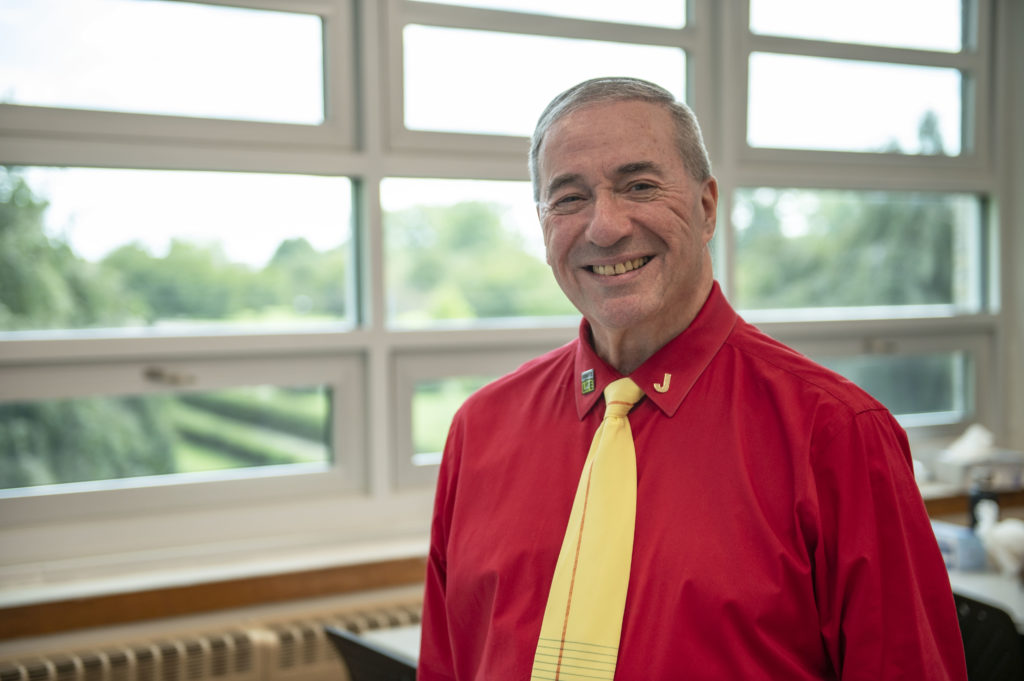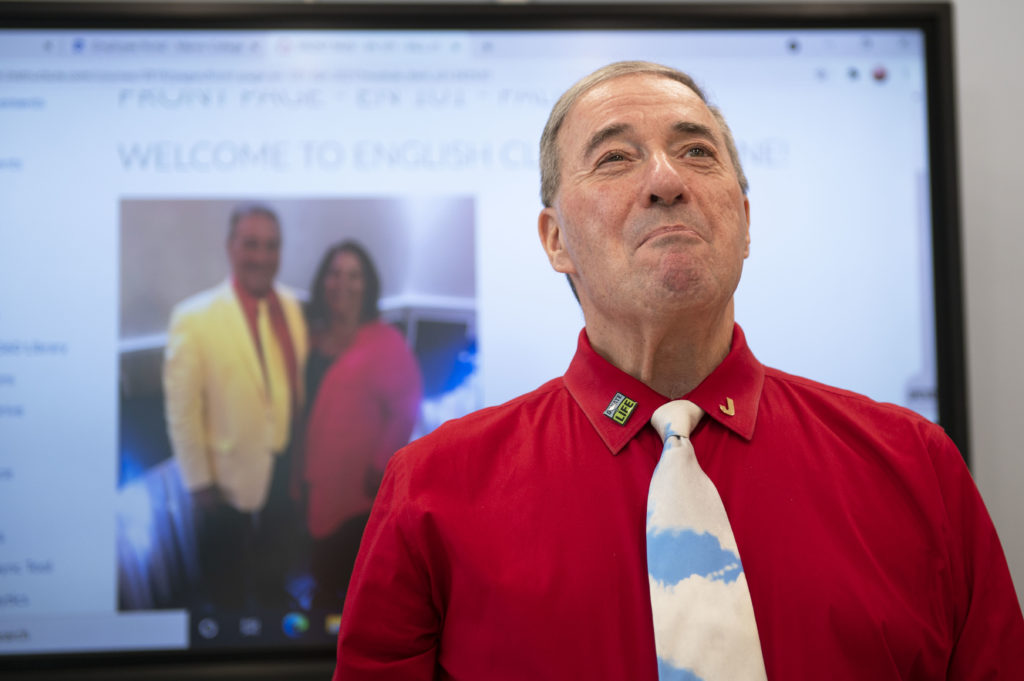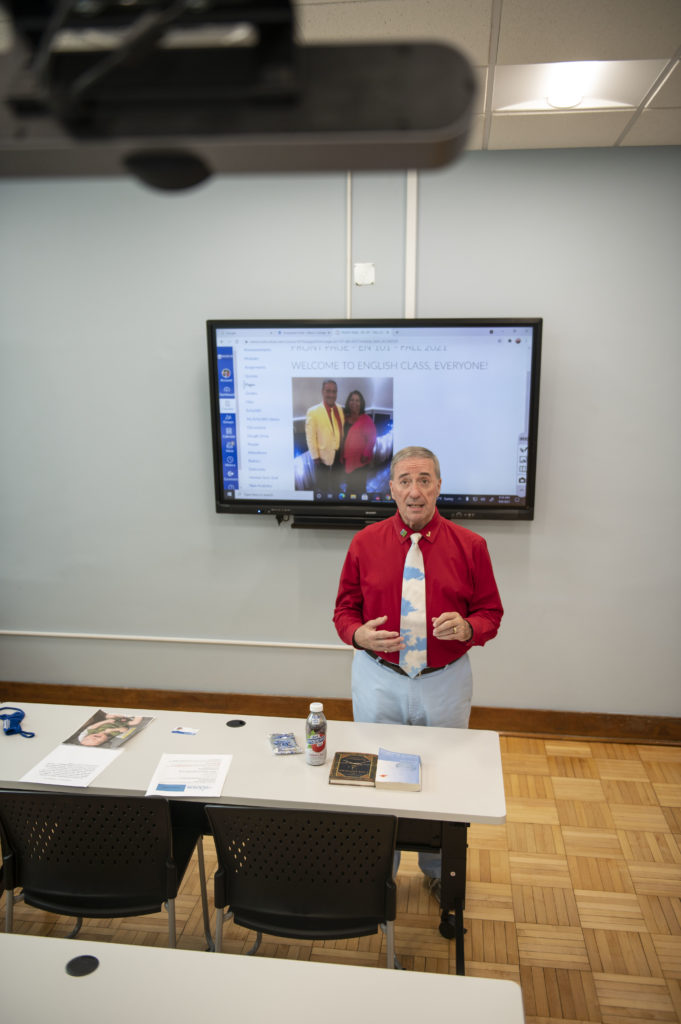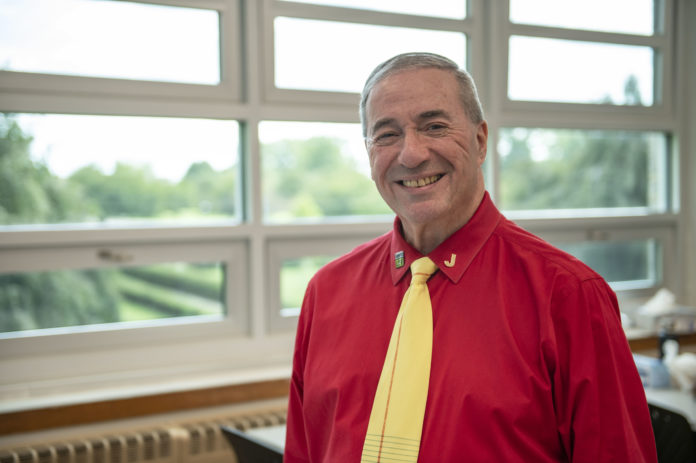This year David Blyweiss, English professor at Manor College, celebrated his 50th year teaching. To Blyweiss, the lessons he learned from his students are more valuable than anything else he has learned over his 50-year career.

He taught English in the Cheltenham School District — seventh and eighth grade — for 34 years, retiring in 2006.
“There were always two things that I wanted to do,” Blyweiss said. “I would work with children who have special needs, and maybe teach college someday.”

He now teaches at Manor College and Community College of Philadelphia, where his department head is a former eighth-grade student. He has been working for around 15 years with challenged kids and those who have their troubles.
He told Madeline Seltzer, who hired him at Manor: “I would love to teach the developmental classes because those are the people who really need the attention and the support. I said I have nowhere to go, and I’m in no rush to get out of the building.”
His most honorable moment as a teacher was when a 7-year-old boy’s father, who served two tours of duty in Afghanistan, asked him to attend a ceremony at the White House where he was receiving a Presidential Medal. While attending the event, he got to meet then-President Barack Obama.
But always thinking of his students, he had a big favor to ask of Obama. Years earlier, he taught a student named Joshua Fattal, whom the Iranian army had arrested for crossing the Iraq/Iran border while hiking.
“I was Josh Fattal’s English teacher 15 years ago,” Blyweiss said to the president. “Please don’t forget about him and the other two people; they’re still in custody.”
Obama commented on his dedication to his students, saying: “One of the reasons you came here was to tell me about a student you taught 15 years ago. You must be a very kind teacher.” Then the president embraced him for a hug.
Besides his long-established career and its impact on students, Blyweiss has suffered some significant tragedy in his life. However, he said it was his students who got him through these difficult times.
His father and father-in-law both passed away eight hours apart, in his arms. So after just visiting the funeral parlor to make arrangements for his father, he was back the next day to plan his father-in-law’s funeral.
“We went back, and they said, ‘You were just here,’ ” Blyweiss said. “Well, we had two funerals in three days.”
That was in 1995. Three years ago, his wife of 35 years, Jerri, collapsed at the airport while Blyweiss was waiting for her to get her luggage. After a frantic call from his daughter, who was there, he ran into the airport to be with his wife, and again someone he loved died within arms reach.
Blyweiss described how he became a sort of impromptu grief counselor to his students after returning to school following the deaths. This allowed him to help them heal in any way possible, which helped his grieving process tremendously.
“The kids all wanted to come in and talk about their grandparents,” Blyweiss said. “I was happy to stay, and it’s part of the career I love.”••






